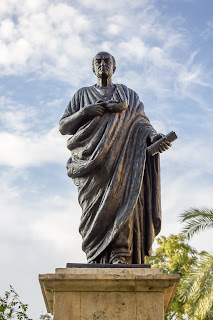I have yet to find anyone who doesn't wish to return to life "the way we were," pre-pandemic. Losses big and small fill our mental lists, the life we've missed, the one to which we long to return. Well, friends, there's actually a word for this feeling. Grief over irretrievable loss is covered quite dramatically by the word hiraeth, pronounced (he rath, with a roll of the r), and it has an interesting history.
Hiraeth is a Welsh word that cannot be translated easily into English. It is a longing for the past with a blend of nostalgia and homesickness, a deep feeling that something may possibly not be able to be reclaimed. Added to this yearning is the concept of place, time and people that may never be recovered. The British have been accused of having tried to replace the Welsh culture. When a country takes control of another one, the invader attempts to dismantle the culture of the attacked and establish their own language and customs. This is what happened when the English King Edward I conquered Wales in the 13th Century, yet the Welsh never forgot the stories linked to their land, their language and folk tales that have kept the ancient culture close. Wales became part of the Kingdom of Great Britain in 1707 and the UK in 1801. Over time, the Welsh, however, retained their language and culture despite heavy English dominance. When the Welsh immigrated to America in the 17th Century and Australia in the 18th Century, 40% of them returned to Wales, homesick for the land of their birth.
King Edward I
We in the United States, much like citizens of every other country in this pandemic, want life to return to the normal we think we once knew, yet the hiraeth we might feel is miniscule compared to the Welsh who were asked to give up their language and way of life. Returning to these elements of our culture that we have lost, however, may not actually result in the kind of progress we need. Change is not new to us. Every aspect of life in the U.S. has been challenged by several wars and by social developments, which many of us remember from the 1960s, and the speed at which they are occurring has increased. While growth is certainly beneficial and necessary for an egalitarian society, it does not come without a price. The fact is, people do not like change, especially if they exist as a privileged segment of society. Maybe we shouldn't want to "go home again" in light of the injustice that disadvantaged populations have suffered.
Our nostalgic view of how good things used to be is a privilege for very few people. What we can do to preserve the past we loved is to embrace the good and discard what simply no longer works, is no longer acceptable in a free and just society. Should we not engage in hiraeth? Although I personally have wonderful memories, many experiences that have taught me valuable lessons, and few regrets, I don't want to retrieve everything that is gone. I learned long ago, probably raising children, that the future holds so much promise and so many possibilities for an even better life. And let's not forget, we have a choice.
We love to romanticize the past, don't we, and there's plenty of evidence of that in our movies and books, greeting cards, Face Book memes, and advertising/marketing schemes, particularly around the holidays. When we don't know how to move forward, we long for the past when things seemed better. Unfortunately, this behavior of romanticizing the past has kept women and people of color in their historical place without moving us forward.
Psychologists tell us that the way to rectify how we view loss is to reframe our negative thoughts into more helpful, believable, positive ones. In other words, change our perspective and be willing to do the work this requires. No one is saying grieving isn't a process, but when does it end and how gracefully can we get through it? What we don't want to do is relive the misery that accompanied the loss, which is in itself a kind of revolution that we aren't quite ready to accept. Use a little psychology on yourself and picture the loss in a different way. Change, after all, is just another opportunity for a second chance, and who doesn't love second chances?
























